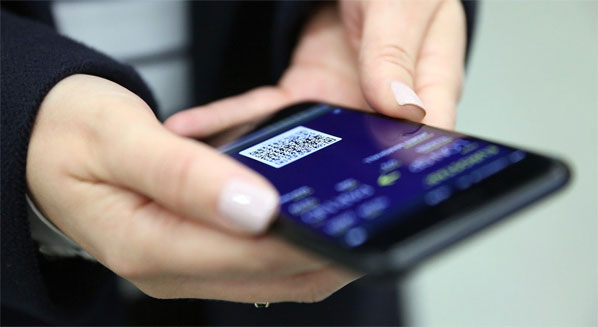
A packed hall is a good sign for an event hosting provider, because spectators constitute a major revenue opportunity for them. Viewers bring direct income in the form of ticket, souvenir, food, beverage, and other online and physical sales. However, enticing crowds of people to your venue is no low-hanging fruit.
One way to attract as many viewers as possible is to offer a great mobile experience. But with so many ticketing systems to choose from, how do users decide your solution is the best one? Below is a quick guide to empowering your ticketing app with advanced features to boost user engagement.
Offer users multiple payment choices
According to Juniper Research, global mobile and wearable-device ticket sales are expected to reach $14 billion this year, making up 54% of total digital purchases for events and transportation.
To follow this trend, introduce diverse payment options and make the purchasing process on your app as easy as possible. Ask mobile apps developers to integrate your ticketing solution with popular payment gateways such as PayPal, Stripe, Amazon, and others. Also, allow users to buy tickets and merchandise via mobile wallets that are all the rage right now. It might be Apple Pay, Samsung Pay, Google Pay, or Starbucks’ system that continues gathering steam.
You can also raise the stakes by harnessing the power of Google Assistant — the way Fandango did it. The company has recently partnered with Google to allow its users to purchase movie tickets with voice commands.
Make smart offerings based on user location
Integrating your ticketing app with Google or Bing Maps is another step to accommodating viewers. They can use your app to find best routes to the venue, look for nearby cafes and event-related shops, get notified about parking, fan zones, and other venue suggestions, as well as obtain information about upcoming events in their hometown or neighbouring areas.
Fan Central Station is a good example of such a map-based solution. The firm works in tandem with a slew of ticket sales companies and serves as a central hub of information about different types of events. But the idea behind the app is not only to give spectators purchasing details but also direct them to authorized websites and mobile apps for merchandise.
Provide additional information sources
Another way to engage users with your app is to give them additional information about the events they’re interested in, i.e. incorporate partner content.
For example, if your business idea is a sports ticketing app, augment it with both text and multimedia content: scores, stats, rankings, analysts’ reviews, online betting options, or video material like interviews, training sessions, match highlights, and draw procedures. Or, if you host music events, think displaying Billboard charts, singers’ upcoming tours, as well as video and photos.
By building such sponsorship relations with high-profile brands, you’ll be able to achieve two aims at once: engaging mobile users and gaining an extra monetization channel.
Build original loyalty programs
In the introduction, we’ve wondered how to make spectators opt for a particular ticketing app. Among possible solutions are thoroughly-planned loyalty programs that presuppose rewarding users for mobile activity.
Within your program, you can give perks for buying tickets and exchanging them with friends, making healthy choices during online shopping, visiting physical stores related to the event, and more.
For instance, Taylor Swift’s managers relied on mobile during the singer’s “Reputation” tour. They used the Ticketmaster Verified Fan app to give spectators better seats if they bought Swift’s merchandise at the same time.
Personalize user offerings
It’s no secret that consumers highly favor personalization. According to Accenture, they are likely to shop with brands that know their purchase history and make relevant recommendations.
To live up to consumers’ expectations, enhance your mobile app with an advanced recommendation engine. Gather and analyze consumer data — previous in-app behavior, search queries, social media posts, etc. — to suggest concerts or matches they’re likely to visit in future and event-related merchandise they might want to acquire.
For example, StubHub customizes the process of ticket buying with its personalization engine that is fed with information about a user’s favorite artists, Spotify account, and iTunes library. “If none of their [users’] favorites have upcoming events, we make recommendations based on related artists to aid in the discovery process and provide fans with exciting new options,” says Parag Vaish, former Head of Mobile at StubHub.
Any challenges so far?
From multiple payment methods and location-based marketing to loyalty programs and customized recommendations, you have much freedom for refining your ticketing app.
But remember that empowering your mobile app with mission-critical features will be difficult from the technical point of view. And if you don’t have the necessary tech talent in-house, consider outsourcing mobile apps developers.
About the Author:
Yana Yelina is a Technology Writer at Oxagile, a leading-edge mobile application development company with more than 50 successful mobile projects under its belt. Oxagile provides mobile apps of any complexity: from award-winning B2C applications to heavy enterprise-grade solutions. You can reach Yana at yana.yelina@oxagile.com or connect via LinkedIn or Twitter.





Thanks for such a good article. It’s so good that now there are applications that make our life easier.